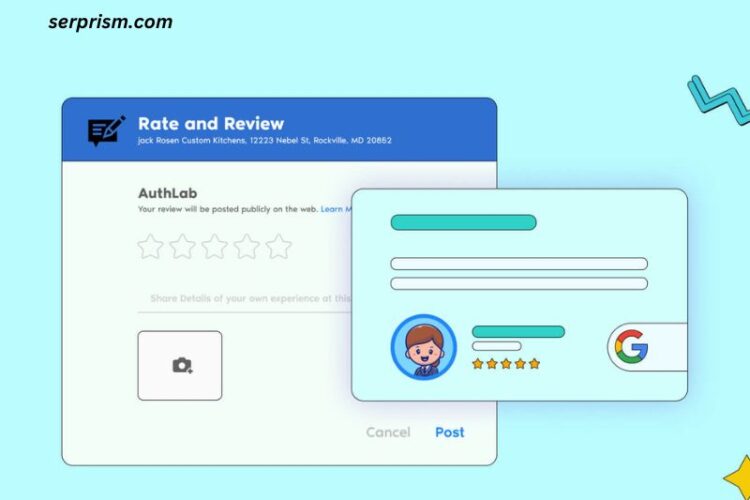
Artificial Intelligence (AI) has been one of the most transformative technologies in recent years, reshaping industries from healthcare to finance, entertainment to education. Among the companies leading this revolution is Google, whose advancements in AI have set new benchmarks for innovation. However, in an unexpected move, Google recently rolled back its ambitious AI overview, signaling a shift in its approach to artificial intelligence development and deployment.
This decision has sparked a lot of discussion within the tech community and among AI enthusiasts, raising questions about the future of AI at Google. Why would one of the foremost technology companies in the world pull back on a core technology that is driving much of the future of computing? In this article, we will explore the background of Google’s AI journey, the factors leading to the rollback, the implications of this move, and what it could mean for the future of AI.
Google’s Pioneering Role in AI Development
Google’s involvement in AI has been extensive, with a history of groundbreaking achievements. From its acquisition of DeepMind in 2014 to the development of TensorFlow, a widely-used open-source machine learning platform, Google has consistently been at the forefront of AI innovation. Some of the company’s most recognizable AI-powered products include Google Assistant, Google Translate, Google Photos, and its search algorithms.
In 2017, Sundar Pichai, CEO of Google, declared that the company was moving from a “mobile-first” to an “AI-first” strategy. This marked a turning point where AI would be integrated across all Google products and services, revolutionizing how users interacted with technology. From machine learning models that personalize YouTube recommendations to natural language processing in Gmail’s Smart Compose feature, AI was no longer a future ambition—it was embedded into the very fabric of Google’s services.
The rollout of Google’s AI overview framework in 2020 was a natural progression of this strategy. The AI overview acted as a comprehensive blueprint, outlining how AI should be developed and deployed across different sectors. It highlighted key areas of focus, such as ethical AI, machine learning, and neural networks, and presented Google’s long-term vision of how AI could solve real-world problems on a global scale.
Why Did Google Roll Back Its AI Overview?
While Google’s AI overview seemed like a logical next step in its AI journey, the rollback of this initiative in 2024 caught many by surprise. There are several key factors that contributed to this decision, each reflecting the complex nature of AI development and its challenges.
1. Ethical Concerns and Public Scrutiny
One of the most significant factors behind Google’s decision to scale back its AI ambitions is the growing concern over the ethical implications of AI. While AI has the potential to revolutionize industries, it also poses serious ethical risks. Concerns about data privacy, biased algorithms, surveillance, and the impact of AI on employment have intensified in recent years.
Google has not been immune to these concerns. In 2020, Google faced a wave of criticism after the controversial departure of Timnit Gebru, a prominent AI ethics researcher, from its AI ethics team. Gebru’s departure raised questions about Google’s commitment to ethical AI practices, and it shed light on the internal conflicts companies face when balancing innovation with responsibility.
By rolling back its AI overview, Google may be signaling a more cautious approach to AI development, one that prioritizes ethical considerations and addresses public concerns. This move suggests that Google is aware of the growing scrutiny surrounding AI and is taking steps to ensure that its AI technologies are developed and deployed responsibly.
2. Regulatory Pressures
Another driving factor behind Google’s rollback is the increasing pressure from regulators. Governments around the world have started to introduce regulations that govern the use of AI. The European Union’s AI Act, for example, seeks to impose strict rules on the development and deployment of AI systems, especially those that pose high risks to individuals’ rights and freedoms.
The regulatory landscape is evolving rapidly, and companies like Google must navigate a complex web of laws and regulations when developing AI technologies. Rolling back its AI overview could be a strategic move to ensure that Google remains compliant with these new regulations and avoids potential legal challenges.
Google’s AI ambitions have always been global, and adapting to the differing regulatory environments across regions is no small task. This rollback allows Google to recalibrate its AI development strategy, ensuring that it can continue to innovate while complying with international regulations.
3. Internal Challenges and Resource Allocation
Building and scaling AI technologies is resource-intensive. Google has been investing heavily in AI research, infrastructure, and talent over the past decade. However, as AI technologies become more complex, the costs associated with developing, maintaining, and deploying these systems have skyrocketed.
It is possible that Google’s decision to roll back its AI overview is a result of internal challenges related to resource allocation. By scaling back its AI efforts, Google can focus on specific areas where it believes AI will have the most significant impact, rather than trying to pursue a broad and ambitious AI strategy across multiple sectors.
This rollback could also signal a strategic realignment within Google. As AI technologies mature, companies must continually reassess their priorities and focus on areas that offer the greatest return on investment. Google’s decision to scale back its AI overview could be part of a larger effort to streamline its AI research and development efforts and concentrate resources on high-impact projects.
Implications for the AI Industry
Google’s decision to roll back its AI overview has significant implications for the broader AI industry. As one of the leading players in AI development, Google’s strategic shifts are closely watched by competitors, researchers, and policymakers alike.
1. Slower Pace of AI Innovation?
One of the primary concerns is that Google’s rollback could slow down the pace of AI innovation. With Google stepping back from its ambitious AI overview, other companies and researchers may also adopt a more cautious approach to AI development.
However, it is also possible that Google’s decision could lead to a more focused and sustainable approach to AI innovation. By prioritizing ethical considerations, regulatory compliance, and resource allocation, Google may set a precedent for responsible AI development that ensures long-term success.
2. A Renewed Focus on Ethical AI
The rollback of Google’s AI overview could also signal a renewed focus on ethical AI across the industry. As companies face increasing pressure from regulators, activists, and the public, there is a growing recognition that AI technologies must be developed in a way that minimizes harm and maximizes benefits.
Google’s decision may encourage other companies to follow suit and adopt more responsible AI practices. This shift could lead to the development of AI systems that are more transparent, accountable, and aligned with societal values.
3. Increased Competition
While Google’s rollback may signal a more cautious approach to AI development, it also opens the door for increased competition in the AI space. As one of the pioneers in AI, Google has set the standard for innovation in the field. However, with Google pulling back on its AI overview, other companies may see this as an opportunity to fill the gap and accelerate their AI efforts.
This increased competition could lead to a more dynamic and competitive AI landscape, with companies racing to develop cutting-edge AI technologies and applications.
The Future of AI at Google
Google’s decision to roll back its AI overview marks a significant shift in its approach to AI development. While this move may seem surprising at first, it reflects the complex challenges that companies face when developing and deploying AI technologies at scale.
Looking ahead, it is likely that Google will continue to be a major player in the AI space. However, the company may adopt a more cautious and focused approach, prioritizing ethical considerations, regulatory compliance, and resource allocation. This shift could ultimately lead to more responsible and sustainable AI development, ensuring that Google remains at the forefront of AI innovation for years to come.
Conclusion
The rollback of Google’s AI overview is a pivotal moment in the company’s AI journey. It signals a shift in strategy, reflecting the growing challenges and complexities associated with AI development. While this move may slow down the pace of AI innovation in the short term, it could also lead to a more responsible and ethical approach to AI development in the long term. As the AI landscape continues to evolve, Google’s strategic decisions will play a critical role in shaping the future of artificial intelligence.




